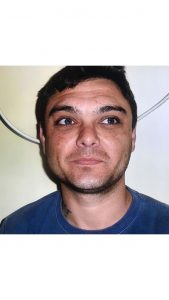 Aboriginal and Torres Strait Islander people are advised that this media statement contains the name and photo of the deceased. This statement has been developed independently but in consultation with representatives of the Reynolds family.
Aboriginal and Torres Strait Islander people are advised that this media statement contains the name and photo of the deceased. This statement has been developed independently but in consultation with representatives of the Reynolds family.
Asthma Australia statement on coronal inquest into the death of Nathan Reynolds from an asthma attack whilst in custody
Any death in custody, particularly a death caused by a preventable health condition like asthma, is unacceptable.
Asthma Australia stands in support of Dunghutti and Anaiwan man Nathan Reynolds’ family in the final days of the coronal inquest investigating the events that led him to suffer a fatal asthma attack whilst in John Moroney Correctional Complex in September 2018.
Asthma Australia highlights that asthma is the most prevalent chronic health condition in Australian prisons affecting 22 per cent of inmates, double that of the national average of 11.2 per cent.
Indigenous Australians at a higher risk of asthma with a prevalence of 18 per cent and are disproportionately represented in Australian prisons. People in custody must rely on the system to provide them with medical care in the event of a severe asthma attack or other medical emergency.
CEO of Asthma Australia Michele Goldman said Nathans Reynold’s death could only be described as tragic and a national conversation needed to follow.
“We are deeply troubled by the circumstances surrounding Nathan Reynold’s death from an asthma attack whilst in custody. We stand beside his family as the inquest draws to a close, in support of their fight for justice and change.
“Asthma must be treated more seriously across the board in our community but even moreso in places where people are more impacted and vulnerable.
“Whilst we look on with earnest at what the Coronial Inquest will recommend, this case has drawn attention to the health inequities experienced by people in prison and the importance of having staff trained to respond in medical emergencies.
“One thing is clear, everyone has the right to access medical care, especially those with a life-threatening – but treatable – chronic condition,” Ms Goldman said.
On the handing down of the Coroner’s findings, Asthma Australia will consider ways to assist in ensuring people in custody have the appropriate treatment for their asthma.
“We hope no other family needlessly experiences the loss, anger and grief the Reynold’s family have had to endure, and we’re committed to helping ensure this can be avoided,” said Ms Goldman.





 1800 278 462
1800 278 462



